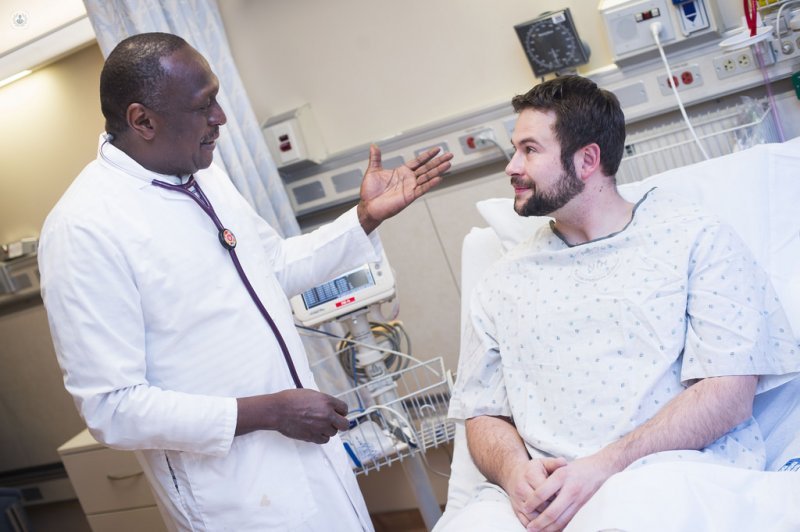Different types of endoscopic procedures: endoscopy, colonoscopy and flexible sigmoidoscopy
Written by:There are principally three common types of endoscopic procedures. Endoscopy (or gastroscopy), which examines the oesophagus, stomach and small bowel, colonoscopy, which inspects the large bowel (colon) and flexible sigmoidoscopy which views the sigmoid colon. A specialist gastroenterologist then examines the results.

Endoscopy (gastroscopy)
Gastroscopy involves a small, flexible tube with a light source and camera (endoscope) being placed through the mouth (usually under sedation) to assess the oesophagus, stomach and small bowel. It takes around ten minutes, but may take longer if additional procedures are undertaken. These might include taking tissue samples (biopsies) treatment for bleeding, blockages (stenting) or removing polyps or early cancer. The test is not painful, but can cause retching. Gastroscopy is normally undertaken to investigate symptoms such as difficulty in swallowing, abdominal pain, vomiting, or persistent heartburn (indigestion).
Colonoscopy
Colonoscopy involves a flexible tube with a light source and camera (colonoscope) being placed through the anus to inspect the large bowel (colon) and occasionally the junction of the large and small bowel. It usually takes 20 to 40 minutes and is usually undertaken with analgesia and sedation, but can be performed without. This procedure also involves dietary modification for 1 to 2 days, in addition to laxatives the day before - and sometimes the morning of the procedure. If polyps are located they are usually removed immediately. The test is not usually painful but can cause discomfort. Colonoscopy is usually undertaken to investigate a change in bowel habit such as diarrhoea, bleeding from the rectum (back passage), screening for colorectal (bowel) cancer or to remove polyps.
Flexible sigmoidoscopy
With a flexible sigmoidoscopy, the colonoscope is only inserted into the first part of the colon called the sigmoid colon. It takes around 10 minutes and only requires an enema for preparation, and usually does not need sedation.
New endoscopic procedures
There are a number of innovative endoscopic procedures which have replaced traditional surgery, and in some cases they can save organs from being removed. These include endoscopic mucosal resection (EMR) for cancerous or pre-cancerous lesions in the digestive tract; endoscopic submucosal dissection (ESD) for larger but early cancerous lesions. Furthermore, a new procedure called POEM (per-oral endoscopic myotomy) for a swallowing problem called achalasia has changed how we manage this condition.



